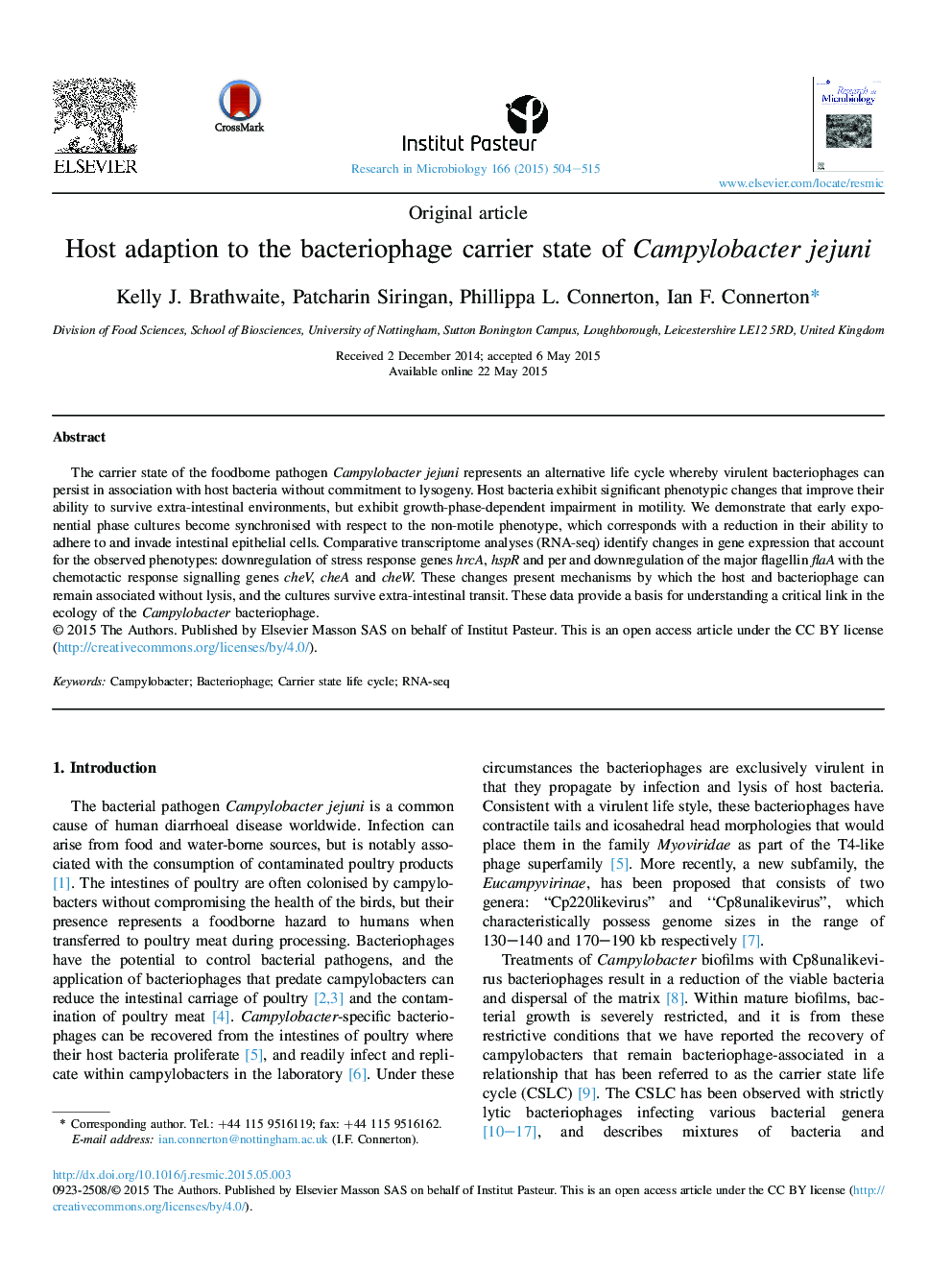| Article ID | Journal | Published Year | Pages | File Type |
|---|---|---|---|---|
| 6288060 | Research in Microbiology | 2015 | 12 Pages |
Abstract
The carrier state of the foodborne pathogen Campylobacter jejuni represents an alternative life cycle whereby virulent bacteriophages can persist in association with host bacteria without commitment to lysogeny. Host bacteria exhibit significant phenotypic changes that improve their ability to survive extra-intestinal environments, but exhibit growth-phase-dependent impairment in motility. We demonstrate that early exponential phase cultures become synchronised with respect to the non-motile phenotype, which corresponds with a reduction in their ability to adhere to and invade intestinal epithelial cells. Comparative transcriptome analyses (RNA-seq) identify changes in gene expression that account for the observed phenotypes: downregulation of stress response genes hrcA, hspR and per and downregulation of the major flagellin flaA with the chemotactic response signalling genes cheV, cheA and cheW. These changes present mechanisms by which the host and bacteriophage can remain associated without lysis, and the cultures survive extra-intestinal transit. These data provide a basis for understanding a critical link in the ecology of the Campylobacter bacteriophage.
Keywords
Related Topics
Life Sciences
Immunology and Microbiology
Applied Microbiology and Biotechnology
Authors
Kelly J. Brathwaite, Patcharin Siringan, Phillippa L. Connerton, Ian F. Connerton,
